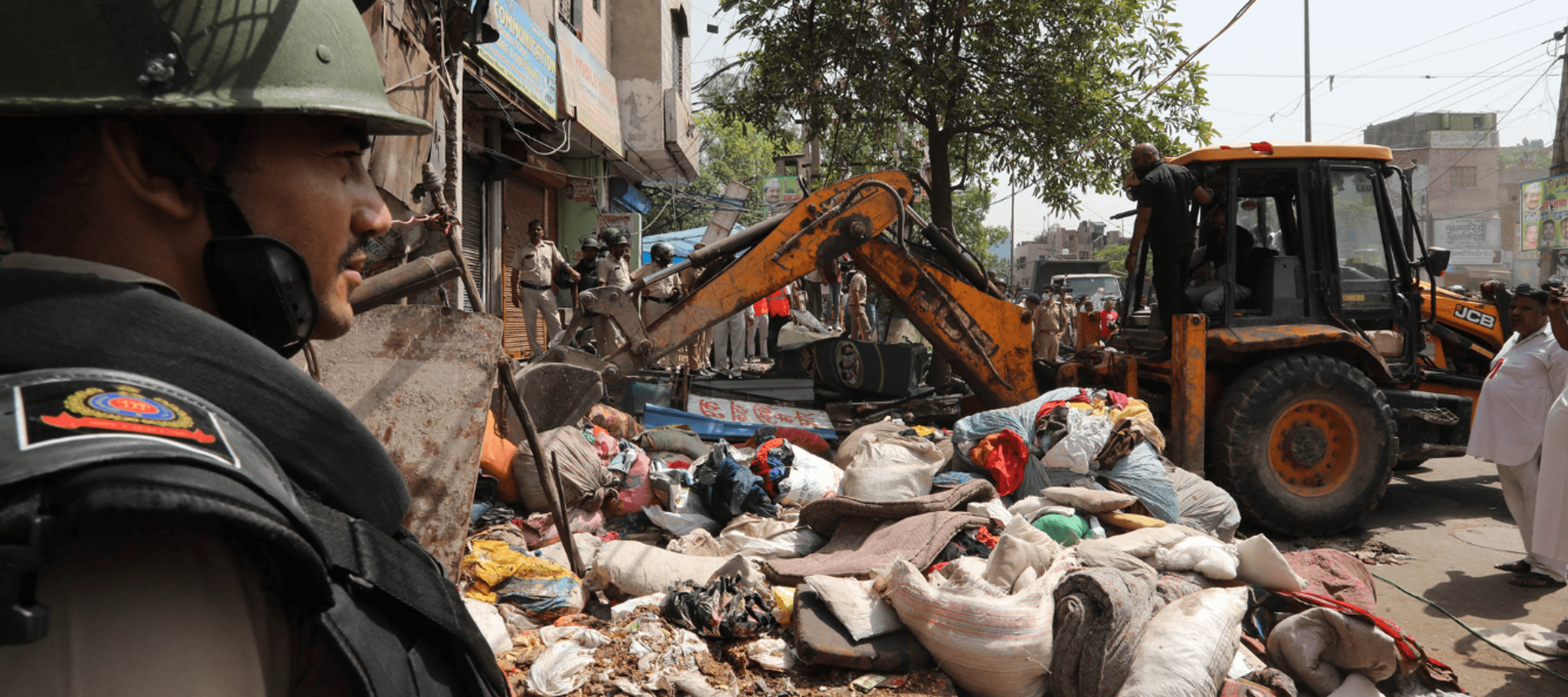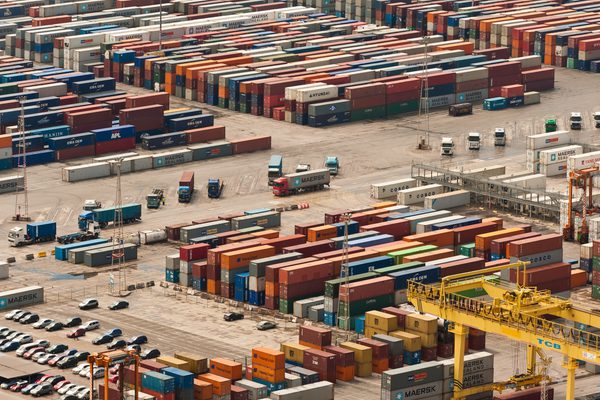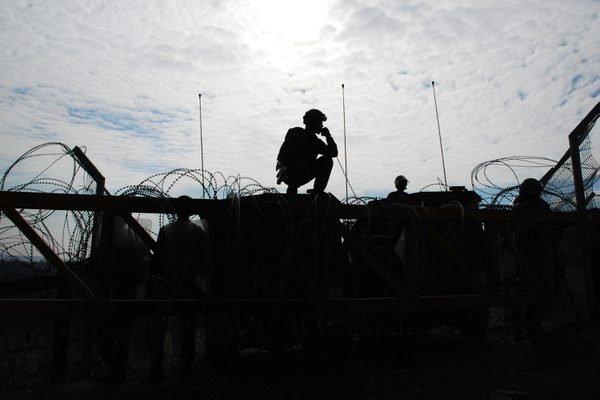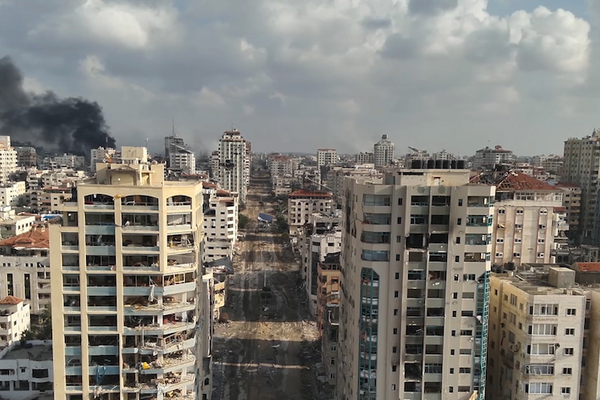Bulldozer Injustice: how a company’s product is being used to violate rights in India
7 March 2024

Bulldozers have been linked to human rights violations for many years, at least since 2003 when the US activist Rachel Corrie was crushed to death by a Caterpillar bulldozer while protesting against the demolition of a Palestinian home with a family inside. Legal action taken by Ms Corrie’s family was dismissed on jurisdictional grounds. But the principles used by judges to determine companies’ duty of care towards human rights are evolving.
Companies that provide products to customers in challenging operating environments, such as conflict zones, place themselves at potentially heightened risk of both criminal and civil liability arising from human rights violations connected to their business activities.
The idea that companies can be held legally responsible for the harm their products cause to people is a long-established principle of tort law, particularly if the foreseeability of harm gives rise to a ‘duty of care’. The fact that a company is not the main perpetrator of the human rights violations arising from its products and there are other parties more to blame is not an adequate defence.
This is the context in which bulldozer manufacturers are coming under increasing scrutiny for the harmful uses of their products. They cannot rely on the idea that human rights responsibilities end at the factory gate. Nor can they meet their responsibility to respect human rights, as defined in the UN Guiding Principles on Business and Human Rights, by passing their human rights responsibilities in the sale of products to third parties, particularly when there are known instances of third parties abusing human rights.
Deactivating hardware in war zones
Both the technological and contractual mechanisms exist for companies to exercise some control over what happens to their products. We have seen this with John Deere, a manufacturer of agricultural equipment that has disabled its machines in Ukraine after they were stolen by Russian forces. John Deere did so by changing a pin number remotely.
Hyundai has stated that it terminated the contract of its Israeli dealer when one of its bulldozers was seen to be involved in an illegal demolition in the Occupied Palestinian Territories.
In the US, some pharmaceutical companies have taken steps to ensure their drugs are not used to administer the death penalty.
This makes it all the more surprising that one of the world’s leading bulldozer manufacturers, JCB, has failed to take adequate steps to prevent or mitigate the adverse human rights impacts of its products despite the numerous occasions in which these have been pointed out to the company.
This has had reputational consequences for the company with JCB’s machinery becoming a controversial symbol in India’s polarised politics.
“Bulldozer justice” in India
The distinct popularity of JCB’s machines has led India’s Bharatiya Janata Party (BJP) political leaders to routinely allude to JCB as a tool to punish Muslims. Popularly known as “bulldozer justice”, punitive demolitions of the homes of dissenting activists, opposition politicians, and others from religious minorities, particularly Muslims, have occurred with increasing frequency in many Indian states, particularly those where the BJP, which rules at the centre, is in power. After the BJP leader Yogi Adityanath won a second consecutive term as the head of the Uttar Pradesh state, a celebratory rally of JCB bulldozer machines was carried out in Gorakhpur town. During demolitions in Delhi in April 2022, GVL Narasimha, a BJP spokesperson, equated JCB with “Jihadi Control Board”.
In the words of a 56-year-old widow whose house was demolished in Madhya Pradesh:
Everyone was sleeping in my house. We were fatigued after fasting for Ramzan. Suddenly we heard a lot of commotion outside. We came out and saw four or five JCB machines coming towards our house. The machines directly attacked our house. We were not given any notice, nothing.
In February 2023 Amnesty International launched a report on these punitive demolitions, finding that between April and June 2022, authorities in five states - Assam, Gujarat, Madhya Pradesh, Uttar Pradesh and Delhi - carried out demolitions as a ‘punishment’ following episodes of communal violence or protests at the targeted discrimination of Muslims by those in authority. Amnesty investigated 63 of 128 documented demolitions in detail by interviewing more than a hundred survivors, legal experts, journalists and community leaders. At least 33 instances of the repeated use of JCB’s equipment were verified.
The investigation also established that at least 617 people, including men, women, children and older persons, were rendered homeless or deprived of their livelihoods. These individuals were subjected to forced evictions, intimidation, unlawful force and arbitrary punishment by the police which undermined their rights to non-discrimination, adequate housing, and a fair trial.
The controversial uses of JCB’s products don’t stop at India. In 2021 Amnesty published a report on the use of JCB’s machinery to demolish Palestinian homes and construct illegal Israeli settlements on the seized Palestinian land. The report found that JCB had not taken adequate steps within the company’s means to prevent its machinery being used for these purposes, a failure that puts the firm in potential breach of its responsibilities under international human rights standards. JCB would know of the human rights impacts of its products as these impacts have been highlighted publicly by organisations that have borne witness to them and in 2020 by the UN Office of the High Commissioner for Human Rights.
Company vs third party responsibilities
While India’s authorities are primarily responsible for these violations, Amnesty examined JCB’s role and responsibility in addressing harmful uses of its products in an accompanying briefing which concludes that the company has failed to apply due diligence to mitigate the human rights impacts of its products. JCB denies responsibility for any human rights abuses committed by the Indian authorities.
The company’s response to these human rights violations has been one of public silence and apparent indifference, largely avoiding engagement with the organisations that have credible evidence relating to the harmful uses of its products. While JCB has a human rights policy, there is little evidence of it being applied in the above contexts.
JCB has the means to do things differently. It could exercise contractual leverage over its dealers, distributors and service agents by embedding human rights conditions into its contracts and requiring that these be passed on to subsequent purchasers.
The company has the technology to keep track of its products after they leave its factories through installation of a sophisticated diagnostic system that provides extensive information to improve its manufacturing and servicing processes. If JCB can locate its bulldozers anywhere in the world, then much like John Deere in Ukraine, could it identify situations where there is high risk of harm and take steps to prevent its products falling into the hands of those who might misuse them, such as the John Deere model of remote lockouts.
For those in India and the Occupied Palestinian Territories whose homes are at risk of being destroyed, the moment when companies whose hardware is facilitating this destruction take more responsibility for misuse of their products cannot come too soon.
Guest commentaries reflect the views of the author(s). See more.




